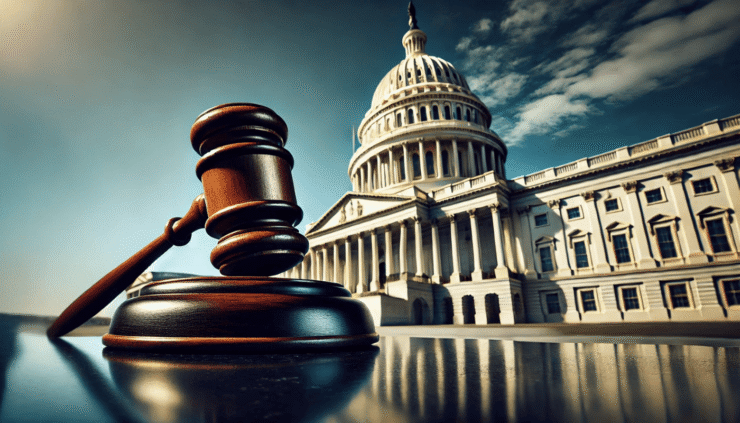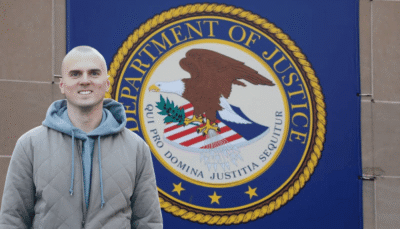As Congress continues shaping the future of digital asset regulation, lawmakers are moving to introduce a significant amendment that could shield blockchain developers from restrictive financial compliance obligations.
The House Financial Services Committee is preparing for a critical markup of the Digital Asset Market Clarity Act of 2025—known as the CLARITY Act—this week. One of the most discussed elements heading into the session is a proposed amendment that would ensure non-controlling blockchain developers and service providers are not classified as money transmitters. If adopted, this would exempt them from certain licensing and compliance requirements typically imposed on financial intermediaries.

The amendment was submitted by Committee Chair French Hill and directly addresses long-standing concerns raised by crypto innovators and industry advocacy groups. At the heart of the proposal is a desire to prevent overregulation from stifling software development and open-source collaboration, particularly for those building decentralized protocols who do not hold custody or control of user funds.
Amendment Echoes Blockchain Certainty Act Language
The proposed language borrows heavily from the Blockchain Regulatory Certainty Act, introduced earlier by Representative Tom Emmer alongside a bipartisan cohort. That bill argued for a clear distinction between protocol developers and custodial financial actors, and now those protections may be integrated into the broader CLARITY Act framework.
This move could consolidate two parallel legislative tracks into a more unified approach to crypto oversight. Crypto policy advocates, including the Blockchain Association, have long pushed for this alignment, citing the need for regulatory clarity that supports innovation without sacrificing accountability.
House and Senate Ready Votes on Crypto Bills
This week could prove pivotal for the future of U.S. digital asset regulation, as both chambers of Congress prepare to vote on major crypto-focused bills—one targeting stablecoins and the other aimed at broader market structure reforms.
On Tuesday, the House Financial Services Committee will hold a markup session to finalize amendments to the CLARITY Act. If approved, the bill could advance to the full House floor, setting the stage for one of the most comprehensive federal frameworks for defining the roles of developers, exchanges, and decentralized services.
Meanwhile, in the Senate, lawmakers are preparing to vote on the long-awaited GENIUS Act, which focuses specifically on regulating payment stablecoins. Senate Majority Leader John Thune has reportedly expressed urgency in passing the bill before the week’s end.
The GENIUS Act would introduce clear standards for how stablecoins are issued, backed, and audited—an increasingly critical issue as tokenized dollar-pegged assets become more integrated with global finance.
Paul Grewal, Chief Legal Officer at Coinbase, emphasized the importance of these developments.
“I think stablecoin legislation has made incredible progress, in large part because I think there is a fairly consistent bipartisan consensus that it’s in the United States’ interest to have sensible rules for stablecoins,” he said last month.
Together, the bills represent a rare moment of bipartisan cooperation on crypto policy in Washington, with both institutional actors and startups closely watching the outcome.
Democrats Divided Ahead of House Crypto Vote
As the House prepares to debate the CLARITY Act, political divisions are surfacing—particularly among Democrats. While the bill enjoys growing bipartisan support, internal dissent within the minority party could still influence its fate.
Representative Maxine Waters, the top Democrat on the House Financial Services Committee, has sharply criticized the bill, arguing that it ignores pressing concerns about corruption and political ties within the crypto space. On Friday, Waters led a Minority Day hearing focused on alleged improprieties linked to former President Donald Trump’s connections to the digital asset sector.
“Not a single provision within this bill addresses the crimes I’ve laid out,” Waters said during the hearing. “In fact, this bill only legitimizes it.”
Her opposition suggests that a substantial portion of House Democrats may vote against the CLARITY Act when it hits the floor. However, not all Democrats are aligned with Waters. Representative Ritchie Torres, a long-time advocate for balanced crypto regulation, has thrown his support behind the legislation. Torres is a co-sponsor of both the CLARITY Act and the Blockchain Regulatory Certainty Act—the two proposals that now appear partially merged.
Quick Facts
- House lawmakers propose an amendment to exempt developers from money transmitter rules.
- The amendment draws from the Blockchain Regulatory Certainty Act.
- The House and Senate are preparing parallel votes on crypto bills.
- Maxine Waters opposes the CLARITY Act; Ritchie Torres supports it.





